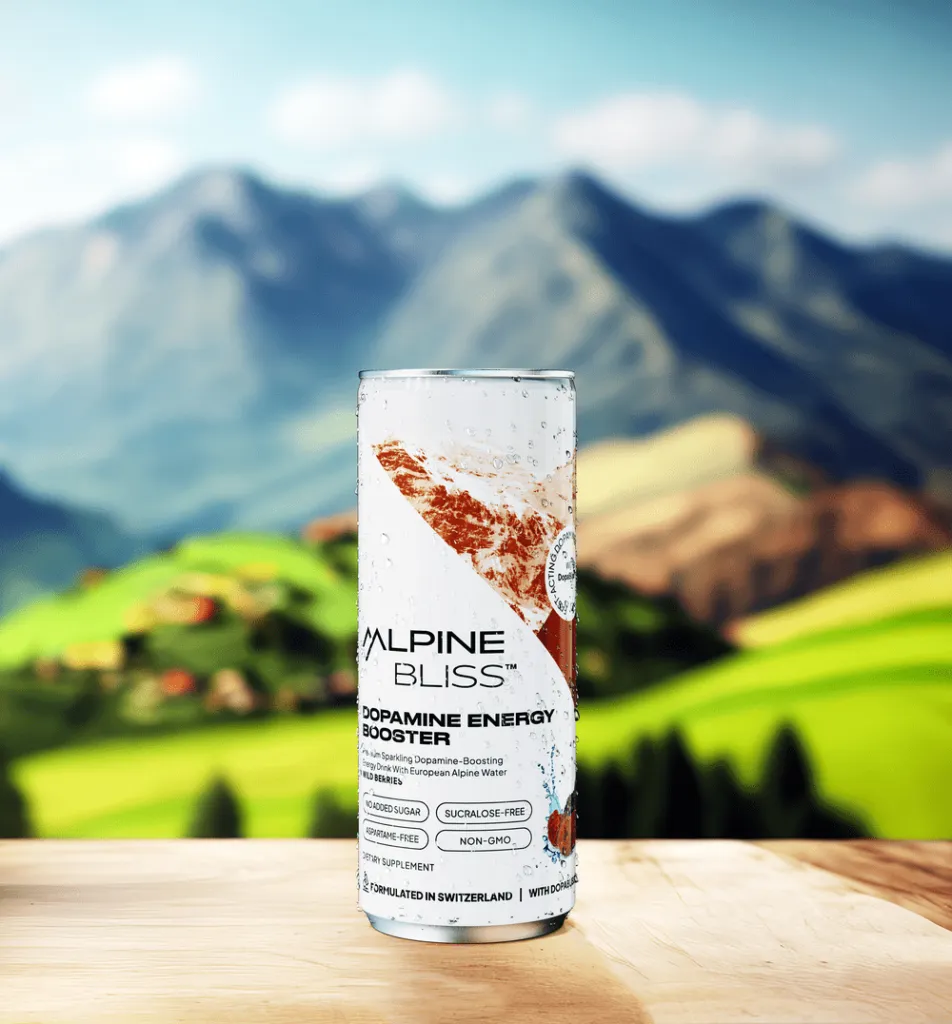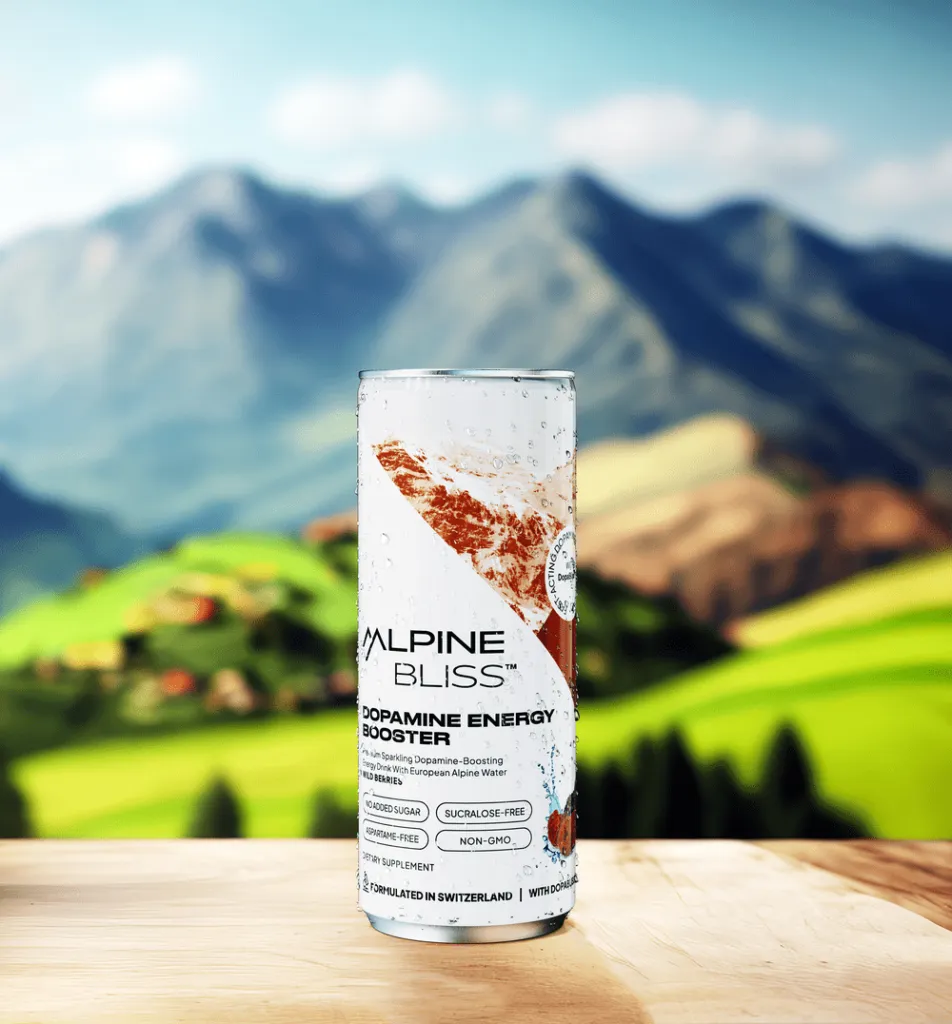What Are The Best Energy Drinks?

Reviewed and fact-checked by certified nutritionists.
Discover the top 5 best energy drinks on the market today to boost your energy levels (without the crash)
In this guide:
- What makes a good energy drink?
- Why mainstream energy drinks can actually wreck your energy levels
- The top 5 best energy drinks on the market today, according to nutritionists
What Are The Best Energy Drinks?

Reviewed and fact-checked by certified nutritionists.
Discover the top 5 best energy drinks on the market today to boost your energy levels (without the crash)
In this guide:
- What makes a good energy drink?
- Why mainstream energy drinks can actually wreck your energy levels
- The top 5 best energy drinks on the market today, according to nutritionists

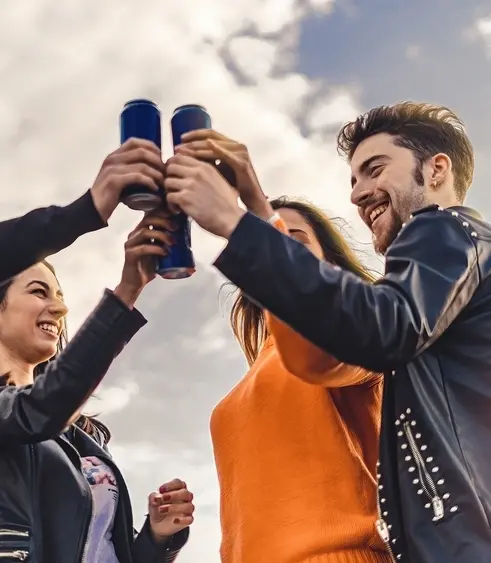
What makes a good energy drink?
Energy drink brands are all claiming to be “the best” on the market.
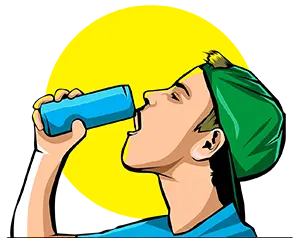
In that context, it can be difficult to know how to trust. The question is: what makes an energy drink “good” exactly? Here are the top things to have in mind when buying an energy drink, according to nutritionists.
That said, there are several kinds of energy:
- The quick boost of energy, followed by a sudden crash (usually 3-4 hours after consuming the drink)
- The strong, sustained boost of energy, which keeps you energized for hours, before declining slowly instead of crashing fast
What kinds of drinks can give you this strong, sustained boost of energy?
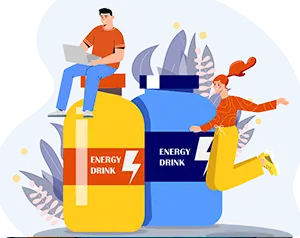
Typically, drinks that contain a moderate amount of caffeine (under 80 mg) along with other stimulants like ginseng, green tea, or ginger. Drinks should also be low on sugar (less than 10 grams), to avoid sudden crashes.
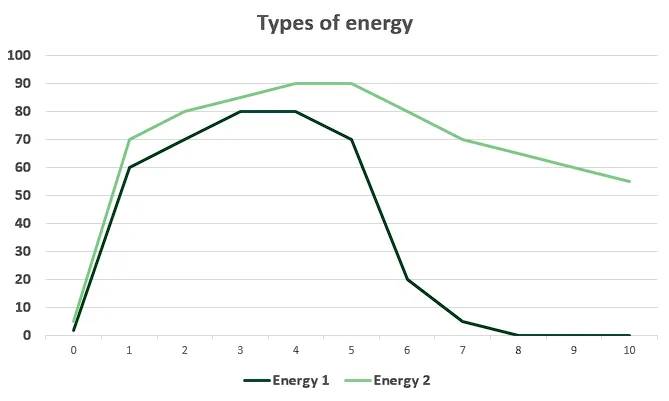
Makes you feel good in your body
Examples of natural ingredients that can make you feel naturally good include: vitamin B, green tea, saffron, ginger, among others.

Ingredients that make you feel bad:
- Aspartame
- Ace-K
- Artificial colors (ex: Yellow No. 5)

Ingredients that make you feel good (examples):
- Green tea
- Vitamin B
- Ginger
Doesn’t destroy your health
Fact: one can of monster contains 63 grams of added sugar, or 16 teaspoons of sugar. According to the World Health Organization, that’s 152% higher than the daily recommended amount, in one single drink.

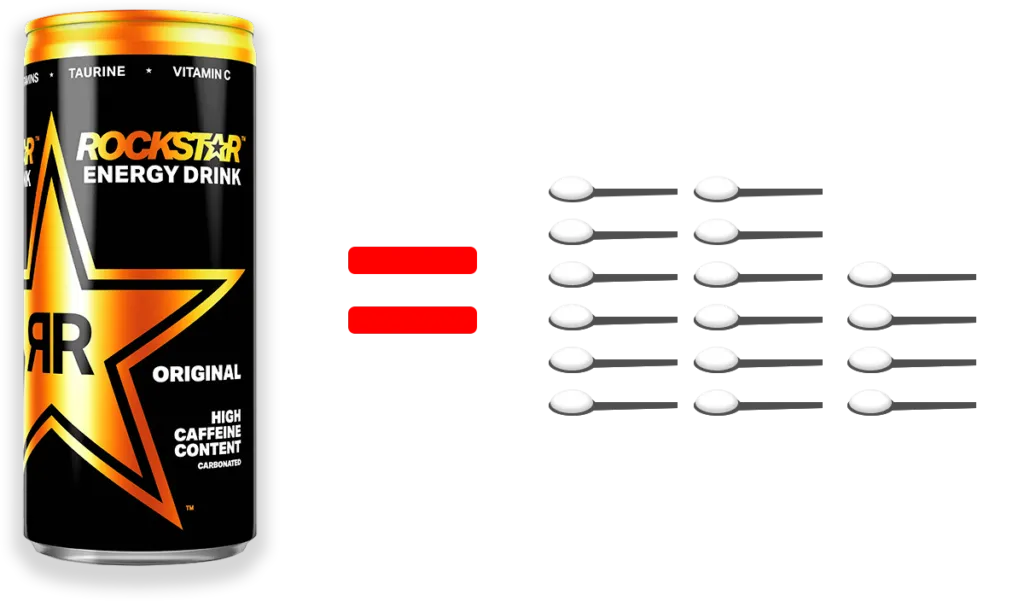
ONE CAN OF ROCKSTAR = 16 TABLESPOONS OF SUGAR
How Ace-K And Aspartame Are Killing You
Aspartame
- Synthetic chemical obtained from genetically modified bacteria
- May cause headaches, anxiety, insomnia
- May increase the risk of cardiovascular diseases, diabetes, and certain types of cancer
- May increase appetite and promote weight gain
- In the list of substances to avoid, according to weight loss recommendations from the World Health Organization
Acesulfame potassium (Ace-K)
- Chemical compound 200 times sweeter than table sugar
- May increase risk of obesity and gut chronic inflammation
- May worse diabetes
- May improve the risk of cognitive dysfunction, due to altering neuro-metabolic activity
8 out of 10 most popular energy drinks on the market contain artificial sweeteners like ace-K or aspartame. In other words, when buying an energy drink, you have an 80% risk of suffering from the damaging long-term effects of these chemicals.
Tastes good
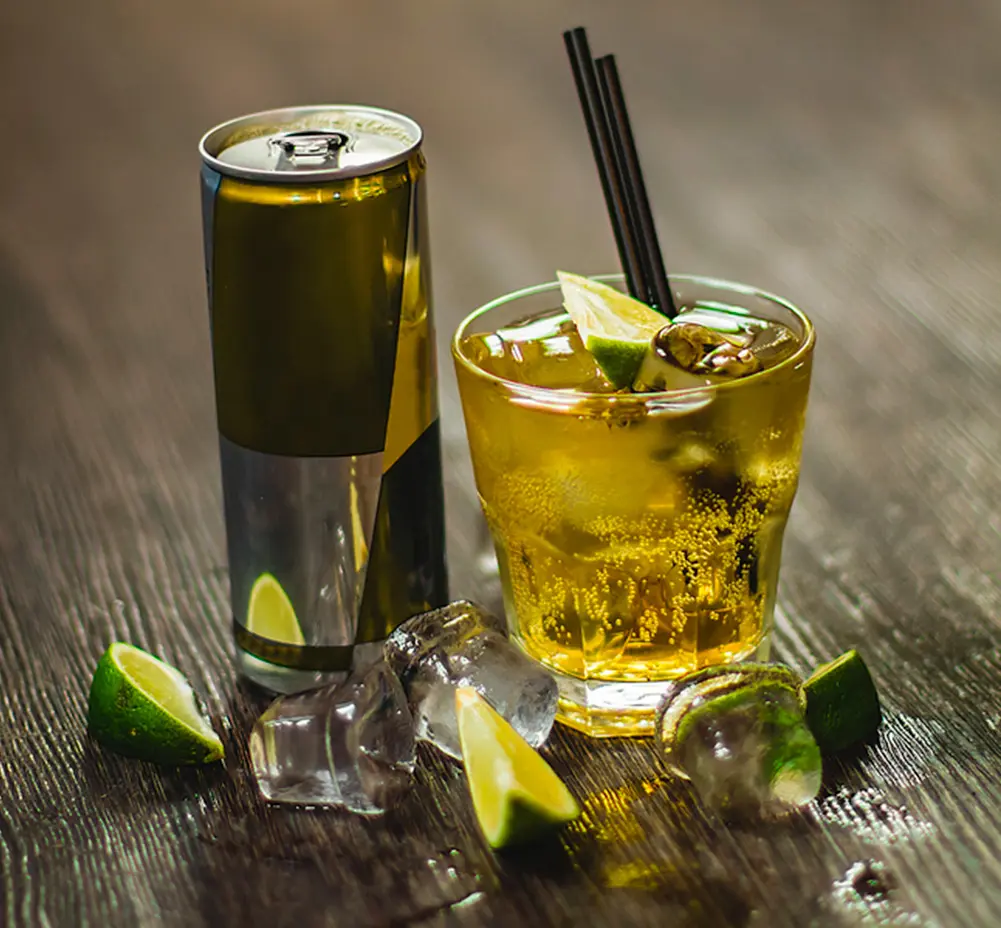
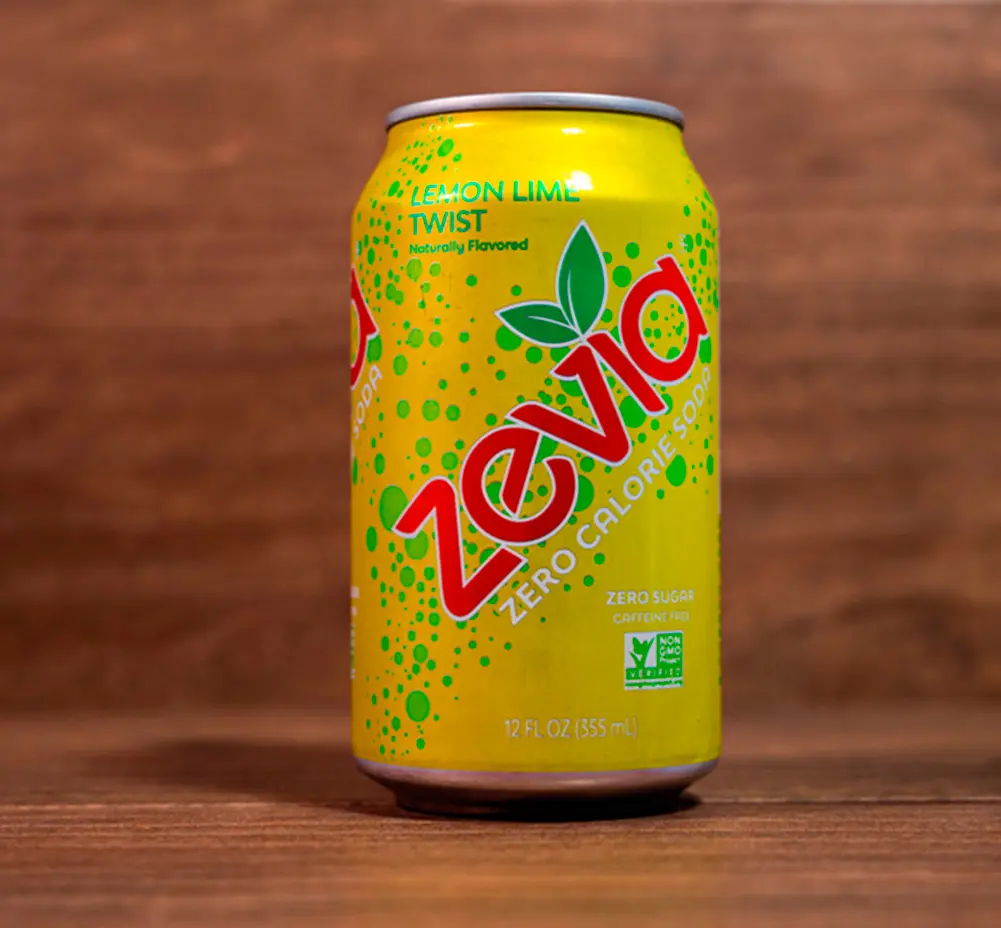
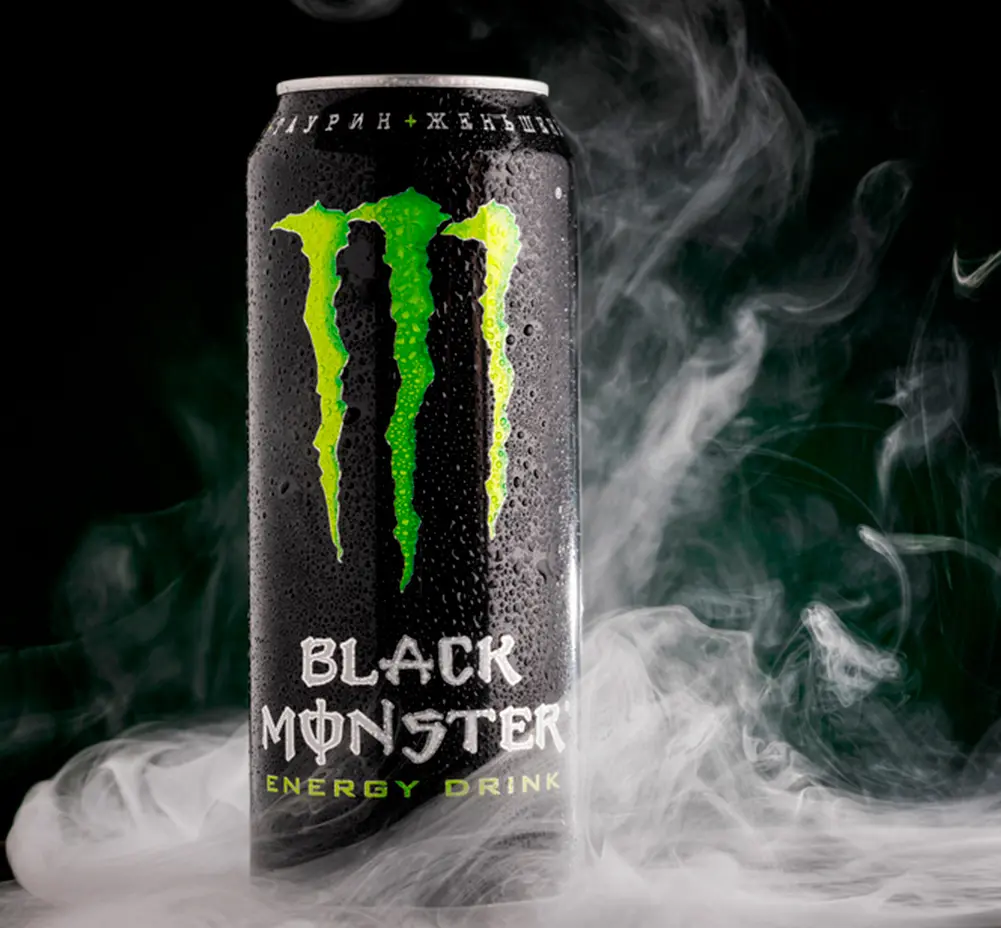
How mainstream energy drinks are actually wrecking your energy levels
Have you ever wondered why you sometimes feel even more tired after drinking a can of Red Bull or Monster?
How come that after taking an energy drink, you end up with LESS energy than before after a few hours?
Many people feel the exact same way. They get their quick boost of energy by sipping a can, and then, the crash comes… and they end up even more exhausted!
Why is it the case?
Simple: when you take a high-sugar energy drink, your blood sugar levels spike immediately, but the boost in energy only lasts for about 30 to 60 minutes (can be longer for some people).
After this, your blood sugar, and energy levels, will crash - leaving you feeling more drowsy and exhausted than before.
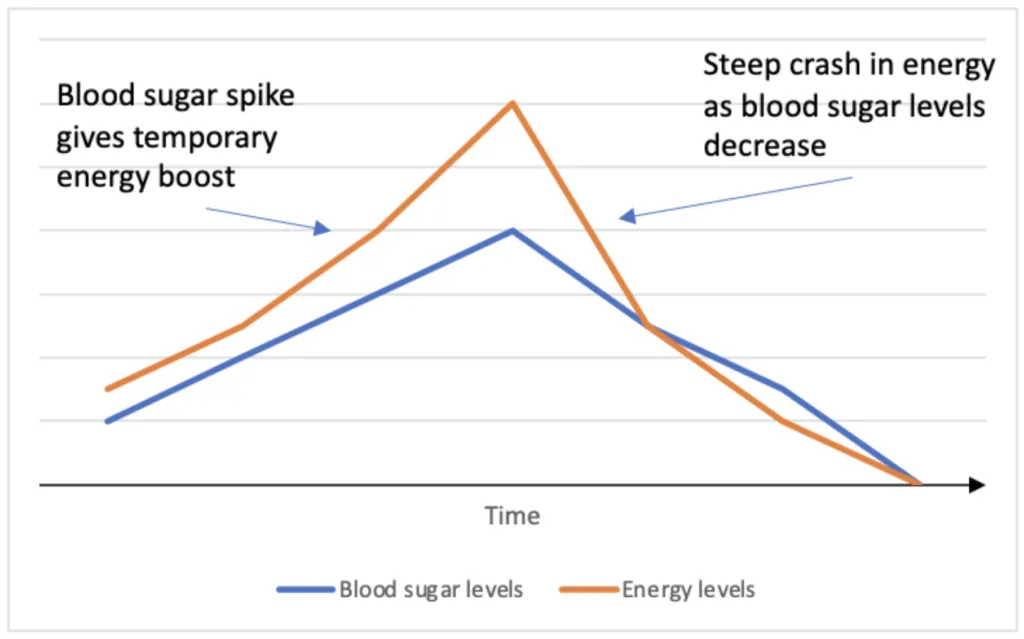
The Science Of Energy Crashes: How Sugar Is Destroying Your Energy
But that’s not even the worst part… According to nutritionists, most energy drinks are actually decreasing your baseline energy levels over time.
In other words, the more energy drinks you consume, the more tired you will feel in general. This is due to the damaging effect of sugar on brain neurochemistry.
Here’s why:
Sugar kills your “orexin” hormone, draining your energy day after day
3 Myths About Energy Drinks
Myth #1: Energy drinks are harmless
Myth #2: All energy drinks are unhealthy
Myth #3: The more caffeine you take, the more energy you get

To achieve an optimal energy zone, you generally need to consume between 60 mg and 100 mg of caffeine. Plus, your overall ability to concentrate and perform is more ideal when you can remain in this sweet spot over a steady period of time. To put that into perspective, one cup of coffee generally contains about 100 mg of caffeine, a shot of espresso is 85 mg of caffeine, and a cup of green tea is 40 mg of caffeine.
Marvin Singh, M.D
Integrative Gastroenterologist in San Diego, California, and Member of the Board and Diplomate of the American Board of Integrative Medicine
3 Facts About Energy Drinks
Fact #1 A moderate dose of caffeine can be more effective than a high dose to boost your energy
As explained earlier, taking 60 mg of caffeine can be more effective than taking 300 mg of caffeine to boost your energy - without causing unpleasant side effects.
That means that you don’t need to look for drinks containing high doses of caffeine to feel a boost. Anything with more than 50 mg will give you all the energy you need without the crashes - especially if the drink contains other stimulants like ginseng, green tea, or ginger.
Fact #2 “Sugar-free” energy drinks are not necessarily healthier for you
By now, you should know about the devastating effects of sugar on your health. But what about “sugar-free” energy drinks? Since they don’t contain any sugar, they must be better for you right? Unfortunately, that’s not always the case. Many brands are using “sugar-free” labels as a marketing argument to sell more cans.
But in 99% of the cases, they contain a strong dose of unhealthy artificial sweeteners to make the taste drink sweet. So yes, they are technically free of sugar, but if they are filled with Ace-K or aspartame, the long-term impact on your health could be even worse…
As a rule of thumb, nutritionists recommend choosing energy drinks that contain a low amount of sugar from natural sources (fruits for example) or natural sweeteners such as stevia.
Fact #3 Some energy drinks may give you some health benefits
It may sound hard to believe, but there are a few energy drinks that can actually give you some health benefits! Since these “healthy” energy drinks are relatively new to the market, you may have not heard of them before. But they do exist. For example, energy drinks that contain Korean Ginseng may increase the number of “T-Cells” we have in our body - a key type of cells that is responsible for keeping our immune system healthy. Another ingredient that is present in a few energy drinks and actually good for your health, is folic acid. According to a large clinical review involving over 80,000 participants, folic acid can reduce the risk of cardiovascular diseases by 4% and decrease the risk of stroke by 10%. By looking for energy drinks with healthy ingredients, you can not only get a strong energy boost to power you through the full day, but also improve your health over time.
What to look for in an energy drink:
Must be sugar-free or low on sugar.
Natural sugar from real fruits is healthier than added sugar. Note that a drink with 5 grams of natural sugar is better than a sugar-free drink full of artificial sweeteners.
No aspartame or ace-K.
These artificial sweeteners can damage gut health and cause long-term health issues. Nearly all low-sugar energy drinks use sweeteners to make the drink taste good. One of the safest sweeteners is stevia: a natural sweetener derived from leaves of the stevia plant.
Provides a sustained boost of energy, without crashes.
The best energy drinks can give you a strong boost of energy for several hours, without causing jitters or crashes. This can be achieved with moderate amounts of natural caffeine and other plant-based energy boosters such as panax ginseng or ginger root extract.
Look for pure, natural ingredients.
Just like whole foods are much healthier than processed foods, pure ingredients (ingredients that are close to their natural state) are better for your body. Look for high-purity plant extracts, organic coffee beans, and high-quality water from a pure source (water being one of the most important ingredients, as c.90% of the drink is water).
Moderate to low amounts of caffeine.
These artificial sweeteners can damage gut health and cause long-term health issues. Nearly all low-sugar energy drinks use sweeteners to make the drink taste good. One of the safest sweeteners is stevia: a natural sweetener derived from leaves of the stevia plant.
Low in calories.
To deliver any potential weight loss benefits, drinks should be low on calories. Anything below 20 calories per can is reasonable.
Rich in vitamins and antioxidants.
Vitamins can not only improve your energy levels, but also boost your metabolism and immune system.
What to avoid:

High in calories

High in calories

Excessive dose of caffeine (over 200 mg)

Contains artificial sweeteners such as ace-K or aspartame
The Top 5 Best Energy Drinks On The Market Today,
According To Nutritionists
Alpine Bliss Dopamine Energy Booster
PROS:
- Provides a strong, sustained boost of energy without crashes
- Improves mood and well-being thanks to a natural blend of dopamine boosters
- Optimal dose of caffeine
- Low on calories and sugar
- Contains a strong dose of vitamins and antioxidants
- No ace-K or aspartame
- Great taste, according to users
- Uses pure Alpine water with high-quality plant-based ingredients
CONS
- Expensive
- Frequently out of stock due to limited production
THE BOTTOM LINE
Taking all of this into consideration puts Alpine Bliss Dopamine Energy booster in our #1 spot.
Celsius Stevia
PROS:
- Established beverage brand
- Low calorie, low sugar
- Strong boost in energy levels thanks to a high dose of caffeine, guarana and green tea extract
- Wide range of tastes and flavors
- Rich in vitamins
CONS
- Caffeine dose may be too high (200 mg)
- Contains erythritol – an artificial sweeteners which may have negative effects on cardiovascular health, but more research is needed
THE BOTTOM LINE
Zoa Zero Sugar Energy Drink
PROS:
- Strong boost of energy enabled by heavy dose of caffeine
- May enhance mental energy and focus
- Rich in vitamins
- Zero added sugar
- Good taste
CONS
- Dose of caffeine may be too high for some consumers (160 mg)
- Excessive amount of sodium (200 mg per can)
- Contains traces of sucralose, albeit in very low quantities
THE BOTTOM LINE
Focusaid Clean Energy
PROS:
- May improve energy, attention and focus
- Strong dose of caffeine
- Contains several natural proven energy boosters, including rhodiola and panax ginseng
- Positive consumer reviews
- Use safe artificial sweeteners, including stevia
CONS
- Relatively high in calories (40 calories per can)
- Sugar content could be lower (around 7 grams)
THE BOTTOM LINE
Bang Energy Drink
PROS:
- Strong boost of energy thanks to high dose of caffeine, CoQ10 and creatine
- Rich in vitamins, promoting energy production
- Zero sugar
CONS
- Excessive amount of caffeine that may lead to unpleasant side effects
- Contains traces of sucralose, which can be unhealthy

